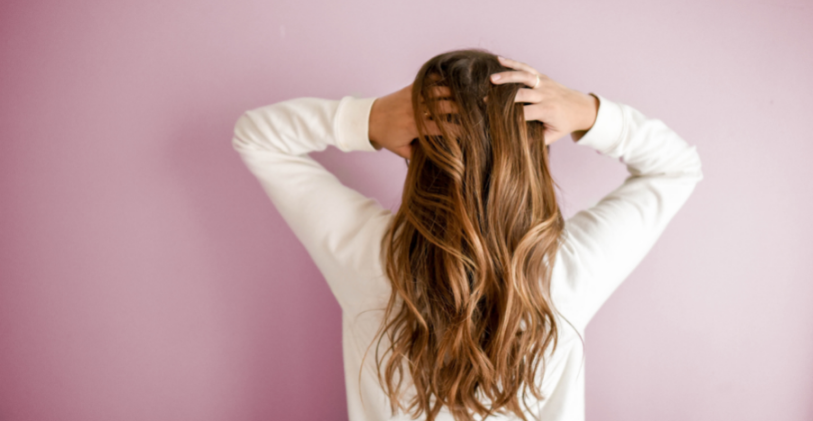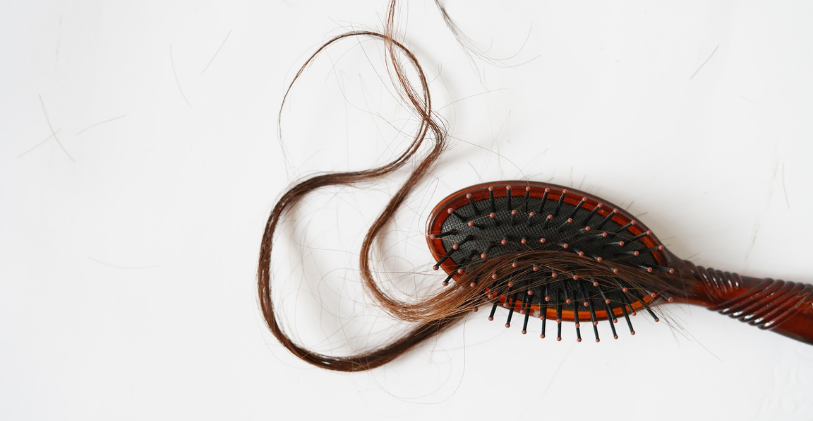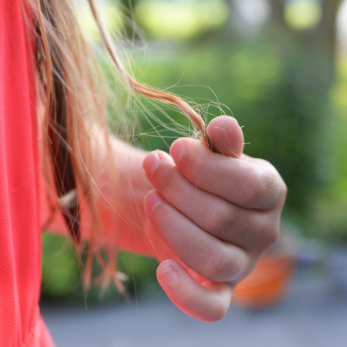22 Tips To Help You Save Your Hair
Introduction
Hair loss can be slowed or stopped in a variety of ways. What you should do, however, is determined on the cause of your hair loss.
Hair loss after pregnancy (telogen effluvium) is one example of a condition that may resolve on its own. Also, keep in mind that everyone sheds hair on a regular basis, which is quite natural.
Hair loss that is persistent needs a visit to the doctor. Thyroid difficulties, stress, scalp infections, androgenic alopecia, or just ageing may be the reason of your hair loss, which your healthcare professional may identify.
Here are 22 hair loss prevention tips:
Diet
- Mediterranean diet
According to a 2018 study, a diet rich in raw vegetables and fresh herbs, such as the Mediterranean diet, can lower the risk of androgenic alopecia (female or male pattern baldness) or delay its start.
The best effects were shown when individuals consumed large amounts of these items more than three times per week, such as parsley, basil, and salad greens. - Protein
Keratin is the main protein found in hair follicles. A 2017 research of 100 patients with hair loss found that they were deficient in numerous nutrients, including amino acids, which are the building blocks of protein. More research is needed on this matter, according to the experts.
According to a reliable source, consuming a high-protein diet can help prevent hair loss. Foods that are healthy include: eggs, nuts, beans and peas, fish, low-fat dairy products, chicken, and turkey. - Vitamin A
Retinoids, which are a component of vitamin A, have been proven to speed up hair growth. This vitamin may also aid in the creation of sebum, keeping the scalp healthy and allowing for the growth of more hairs.
Include foods high in vitamin A on your plate, such as sweet potatoes, sweet peppers, and spinach, to mention a few.
Supplements
- Multivitamin
Vitamins A, B, C, D, iron, selenium, and zinc are all important for hair development and retention, particularly cell turnover, according to scientists. Daily multivitamins may be found in most grocery shops and drug stores, or you can ask your doctor to prescribe one for you. - Vitamin D
Vitamin D has been linked to non-scarring alopecia, according to a 2018 research. Regrowth may be helped by treating deficiencies. Consult your physician about taking 800 to 1000 IU each day. - Biotin
Biotin, often known as vitamin H or B7, aids in the production of fatty acids in the body. This stage is necessary for the hair’s life cycle, and if you don’t have enough of it, you could lose your hair. Consult your physician about taking three to five milligrams each day. - Saw palmetto
This plant, which comes from the fruit of American dwarf pine trees, may help men maintain their testosterone levels. According to a study published in 2004, 60% of people who took saw palmetto noticed an increase in hair growth. The research used a daily dose of 200 mg. - Ginseng
Ginseng includes phytochemicals that may aid in the development of hair on the scalp. More research is needed before precise doses may be recommended. In the meanwhile, talk to your doctor about taking ginseng pills or attempting topical ginseng treatments.
Hair Care
- Regular Washing
By keeping the scalp healthy and clean, daily hair washing may help to prevent hair loss. The most important thing is to use a gentle shampoo. Harsher formulations may cause hair to dry out and break, resulting in hair loss. - Coconut Oil
Researchers think that coconut oil can help reduce hair loss from grooming and UV radiation exposure, according to a 2018 assessment of studies.
Coconut oil contains lauric acid, which helps to bind protein in hair and protects it from splitting at the root and strand. Massage coconut oil onto the scalp to improve blood flow and stimulate hair renewal. - Olive Oil
Olive oil may be used to deep condition hair and protect it from damage caused by dryness. Olive oil is also a key component of the Mediterranean diet, which may aid in the prevention of natural hair loss.
Apply a couple teaspoons of olive oil to your hair and leave it on for 30 minutes before rinsing it out. - Gentle Styling
Avoid tight braids or ponytails, which can cause hair to strain at the root and cause excessive shedding. Allow your hair to air dry while you’re at it to avoid aggravating your scalp. Curling or straightening irons, for example, can damage or break the hair shaft. - Hair Processing
Chemical treatments, such as perms or hair dye, can harm your hair and scalp. Ask your hairdresser about natural and organic hair colours that don’t include ammonia, peroxide, or para-phenylenediamine (PPD).
Medical Treatments
- Laser Therapy
Low-level lasers could be able to help with hair density. For those suffering from genetic hair loss or chemotherapy-induced hair loss, this is the place to go. This treatment is also known as red light therapy, and it stimulates epidermal stem cells.
Home laser devices vary in scope from $200 to $600. - Platelet-rich plasma
Injecting platelet-rich plasma (PRP) into the scalp can help promote hair growth in places where hair loss has already occurred. The platelets are separated from the blood in a centrifuge before being injected into the scalp.
After four sessions, 11 individuals in a 2017 research observed a 30 percent increase in growth in thinning regions. According to the Cleveland Clinic, each session costs between $500 and $1000.
Medication
- Minoxidil
According to the Mayo Clinic, this over-the-counter (OTC) medication, also known as Rogaine, works for around two-thirds of women who try it.
Every day, apply the liquid or foam to your scalp. Irritation of the scalp and acne at the application site are some of the side effects. Irregular pulse and impaired vision are two less common side effects. - Finasteride
This prescription medication, often known as Propecia, may help reduce hair loss and even encourage new hair growth. According to the Mayo Clinic, it is authorised for males and works best for those under the age of 60. This medicine should not be taken by women who are pregnant or may become pregnant. - Phenylephrine
By encouraging the follicular muscles to contract, topical phenylephrine may assist with hair loss due to styling. This makes it more difficult to pull hairs out when brushing, for example.
Unfortunately, you’ll have to keep your eyes peeled for this medicinal remedy. Scientists have devised a unique formula known as AB102, but it has yet to be made public.
Other Methods
- Essential Oils
Essential oils may aid in the prevention of hair loss. In a 1998 research, 86 patients with alopecia areata were separated into two groups, one of whom received cedarwood oil blended with lavender and rosemary applied to their scalps. After seven months, 43% of the people in that group had improved their health.
Lavender, lemongrass, and peppermint are some more essential oils to explore. Apply a few drops of any or all of these oils to the scalp with a couple tablespoons of carrier oil, such as jojoba or grapeseed, and leave on for 10 minutes before washing. - Onion Juice
After applying crude onion juice to their scalps twice a day, those with alopecia areata may experience regrowth.
While there isn’t much data on this therapy, it did appear to boost growth in nearly 87 percent of participants in a short 2014 study. What is the mechanism behind it? Scientists believe the onion’s sulphur component is the key to its enchantment. - Massage
We all know how relaxing scalp massage is, but can it also help you grow your hair? Maybe.
Over the course of 24 weeks, participants in a small 2016 research saw benefits with as little as four minutes of massage each day. - Yoga
Yoga may help with hair loss caused by stress. Downward Facing Dog, Forward Bend, Camel Pose, Shoulder Stand, Fish Pose, and Kneeling Pose are all stress-relieving yoga positions that can help prevent and reduce hair loss. On YouTube, you may discover a routine for these positions for free.
Why does hair fall out?
Hair on your head has a life cycle that includes growing, resting, and shedding. People commonly shed approximately 100 hairs every day.
You should contact your doctor if you see additional rapid hair loss, loss in patches, or overall thinning.
Some shedding is temporary and can be helped by a change in diet, certain therapies, or a change in lifestyle.
By the age of 40, nearly half of all men will have lost their hair owing to genetic diseases such as androgenic alopecia (male pattern baldness). Similarly, by the age of 70, more than half of women will have genetic hair loss (female pattern baldness).
Hair loss can also be caused by the following factors:
- Alopecia areata, scalp infections, and trichotillomania are examples of medical disorders (hair-pulling disorder)
- Pregnancy, childbirth, menopause, or thyroid problems can all cause hormonal shifts.
- Medicines or supplements, such as those used to treat cancer, high blood pressure, and other conditions
- Arthritis
- Radiation therapy that is used to treat diseases such as cancer.
- Stress, whether physical or mental, is a common phenomenon.
- Styling techniques, like wearing tight ponytails or cornrows.
Conclusion
If you’re suffering sudden or severe hair loss, schedule an appointment with your doctor. Some diseases, such as thyroid problems, are resistant to home treatments and require treatment of the underlying reasons.



